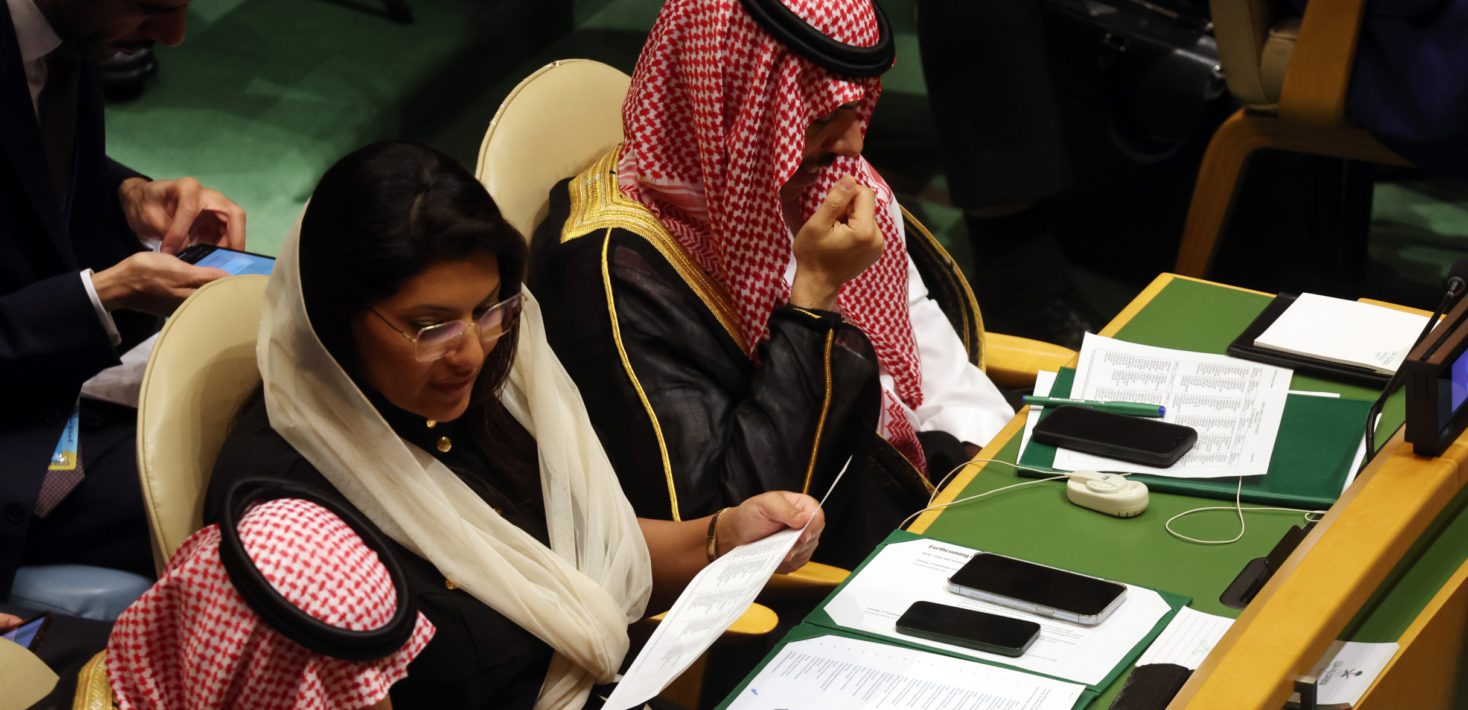Ahead of the expected announcement that Saudi Arabia will be appointed chair of the UN women’s rights forum at the annual meeting of the UN Commission of the Status of Women today, Amnesty International’s Deputy Director for Advocacy, Sherine Tadros, said:
“The Commission on the Status of Women has a clear mandate to promote women’s rights and gender equality and it is vital for the chair of the commission to uphold this. Saudi Arabia’s abysmal record when it comes to protecting and promoting the rights of women puts a spotlight on the vast gulf between the lived reality for women and girls in Saudi Arabia, and the aspirations of the Commission.
“The UN Charter clearly states respect for human rights as a primary purpose of the UN. Membership of its human rights bodies means an added responsibility to strengthen this respect, globally and domestically. This is compounded for leadership roles in these bodies.
Saudi Arabia’s abysmal record when it comes to protecting and promoting the rights of women puts a spotlight on the vast gulf between the lived reality for women and girls in Saudi Arabia, and the aspirations of the Commission.
Amnesty International’s Deputy Director for Advocacy, Sherine Tadros
“Saudi Arabia’s 2022 Personal Status Law, hailed by the authorities as a step towards progress and equality in fact entrenches gender-based discrimination in every aspect of family life, from marriage, to divorce, child custody and inheritance, and fails to protect women from gender-based violence.
“An Amnesty International report published this week highlighted how a leaked draft of Saudi Arabia’s first written penal code would have further catastrophic consequences for women in the country.
“Saudi Arabia cannot prove its commitment to women’s rights merely by securing a leadership role in the Commission. It must demonstrate its commitment through concrete actions domestically, including by abolishing the male guardianship system and repealing provisions from its laws that discriminate against women. Saudi Arabia’s authorities must also end their crackdown on freedom of expression and immediately release all those unjustly detained for expressing their views including expressing support for women’s rights.”
Saudi Arabia cannot prove its commitment to women’s rights merely by securing a leadership role in the Commission. It must demonstrate its commitment through concrete actions domestically.
Amnesty International’s Deputy Director for Advocacy, Sherine Tadros
Background:
The draft penal code analysed by Amnesty International in its report Manifesto of Repression grants immunity from criminal prosecution to perpetrators of so-called “honour crimes”, fails to criminalize marital rape, and criminalises consensual sexual relations between adult men as well as sex outside of marriage.
Women human rights defenders in Saudi Arabia face persecution and prominent women’s rights activists have had travel bans and other restrictions imposed on their ability to exercise their right to freedom of expression. Saudi Arabian women who have tweeted in support of women’s rights have been sentenced to some of the longest prison terms Amnesty International has ever documented for simply expressing one’s opinions, including sentences of 45 years and 27 years. Manahel al-Otaibi currently faces trial before Saudi Arabia’s notorious counter-terrorism court simply for tweeting in support of women’s rights and posting a picture of herself on Snapchat without wearing an abaya (traditional robe).


